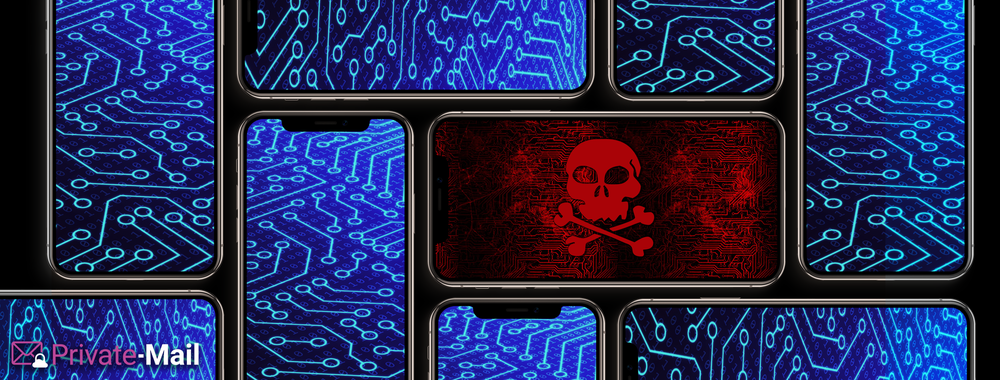
Healthcare’s Emerging Email Threats
A lot of industries heavily rely on email for communication. Since the pandemic, many businesses have allowed for indefinite remote work or communication between multiple locations by digital communication. Every bit of information those businesses have, from private contracts to legal paperwork to patient healthcare information, is now somewhere on the internet.
Companies with privacy concerns have changed their policies or created new policies for the transmission of confidential information online. The healthcare industry never has and doesn’t seem to be interested in adopting a universally accepted standard. This is a problem that has caused serious consequences and will continue to if something doesn’t change.
Healthcare Heavily Relies on Email
Although HIPAA laws specifically state that healthcare providers are required to keep patient information confidential, many providers aren’t all that interested in digitally securing their information. In the year 2019, more than 70% of healthcare providers reported that they were subjected to a cyberattack via email.
With the overwhelming majority of healthcare providers experiencing the same serious problem, it’s shocking and unacceptable that no industry wide standards have been adopted for keeping email communications secure.
A closer look at the situation by data reporting agencies clearly state that insiders are to blame. Healthcare workers open emails with malicious attachments or fall for spoof emails, inputting their credentials and handing them over to bad actors. How can this continue to happen?
Ransomware Thrives in Your Inbox
Email is the easiest route for launching cyberattacks. Ransomware attachments that appear to be ordinary and nonthreatening documents are opened by healthcare workers and allowed to overtake entire systems. This compromises the entire healthcare practice, as well as the personal information of every single patient they’ve ever served. Everything is at stake.
Finding the Solution
The solution is so easy that it’s unacceptable that so many healthcare providers have failed to implement it. It doesn’t necessarily require a massive system update or a laundry list of new protocols. Simply switching email providers and teaching everyone the basics of keeping information secure online is enough to prevent many attacks from becoming successful.
It’s not a giant overhaul and tens of thousands of dollars. It’s a half day’s work with a little meeting, in conjunction with the occasional refresher course. It’s something that providers working with even the smallest of budgets are capable of doing, and the impact will be significant.
Emails may not be from the sender who appears to send them, and attachments aren’t always what they seem. Screening attachments, or better still, screening the sender, and never opening attachments if you don’t know what you’re doing or who it’s from, is the easiest way to avoid making a mistake. Companies should create internal communication rules for employees that prevent opening email from anyone outside of an internal contact list.
If you switch to a secure encrypted email provider to centralize all conversations and employee accounts, it’s a lot more difficult for uninformed employees to make a mistake. Your healthcare practice needed encryption 20 years ago. It needs it even more with each passing moment.
How PrivateMail Can Keep Your Data Secure
You don’t need to be a tech genius to use PrivateMail or to understand how it works. The process is simple. Give each employee their own PrivateMail account through your admin controlled business account, and use PrivateMail exclusively for all healthcare practice related communications. With built in domain and logo white labling the process will be transparent to customers.
PrivateMail is a secure encrypted email service that keeps attachments, documents, images, and email content secure from sender to receiver. Not even the people who operate PrivateMail have access to encrypted content that you send through the email or file sharing platform.
PrivateMail uses the most advanced form of encryption to keep data secure. It’s never vulnerable to interception. PrivateMail can be configured to filter HTML and dynamic content, allowing the recipient of emails to easily determine if the email they’ve received is legitimate. This prevents malicious scripts from executing when email is opened.
If everyone within your office is using PrivateMail accounts, there won’t be any cases of mistaken identity. You’ll know who sent the email, not who appears to have sent the email.
Backing up PrivateMail with a VPN like TorGuard gives you an extra layer of security by closing the vulnerabilities in your office WiFi. Strangers can’t intercept your connection and see the data you’re transmitting when you’re online in an attempt to steal your data. TorGuard VPN also offers Dedicated VPN IP business solutions so you can restrict outsider IP’s from accessing sensitive internal systems.
The Takeaway
If your healthcare practice hasn’t already been the target of a cyberattack, the odds aren’t in your favor. Chances are higher than not that you will be attacked at some point. Switching to secure communication platforms like PrivateMail, talking to your employees about the basics of email and password security, and connecting exclusively through a VPN will secure your practice a spot among the 30% of healthcare providers that aren’t vulnerable to these attacks.







